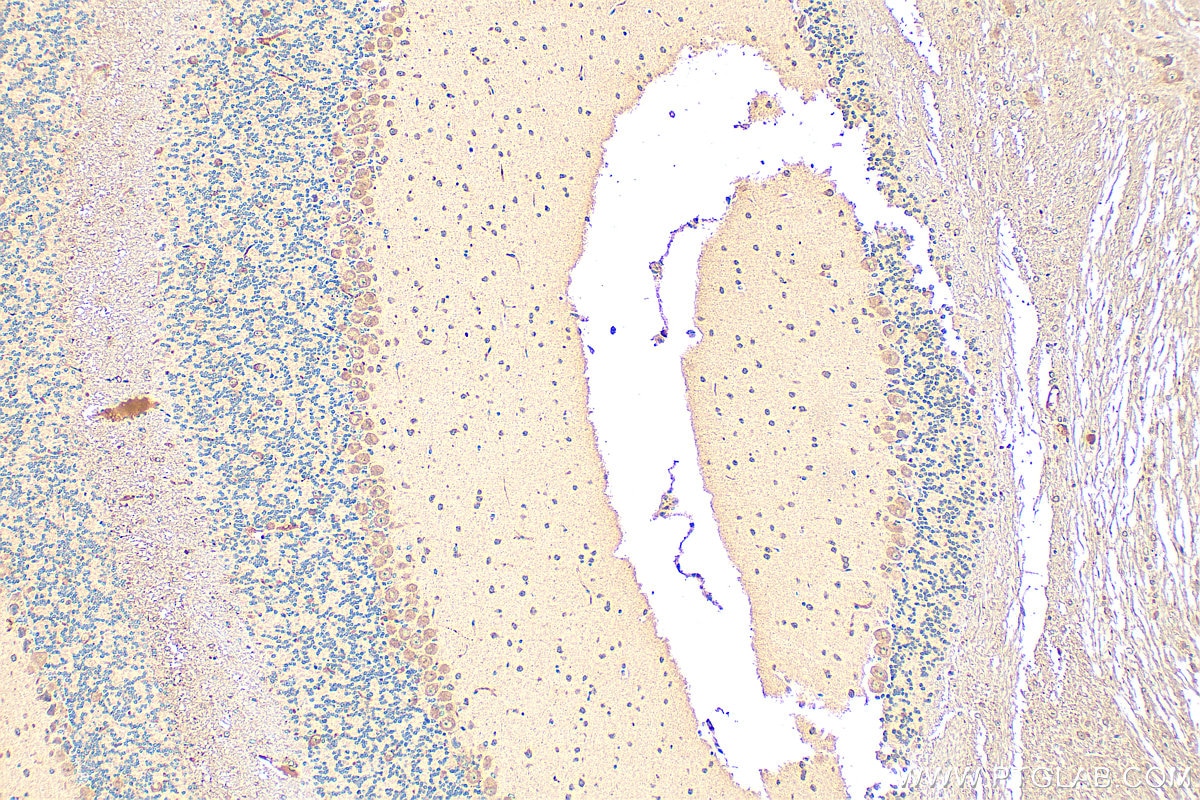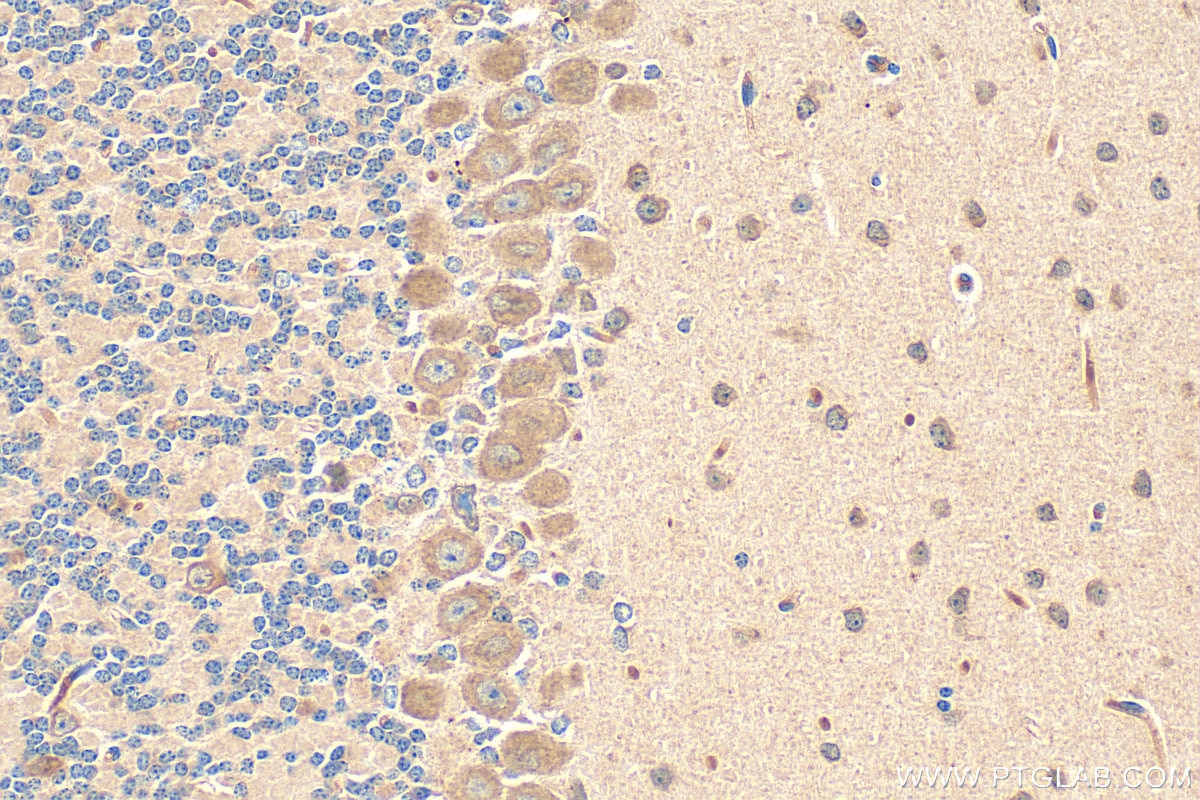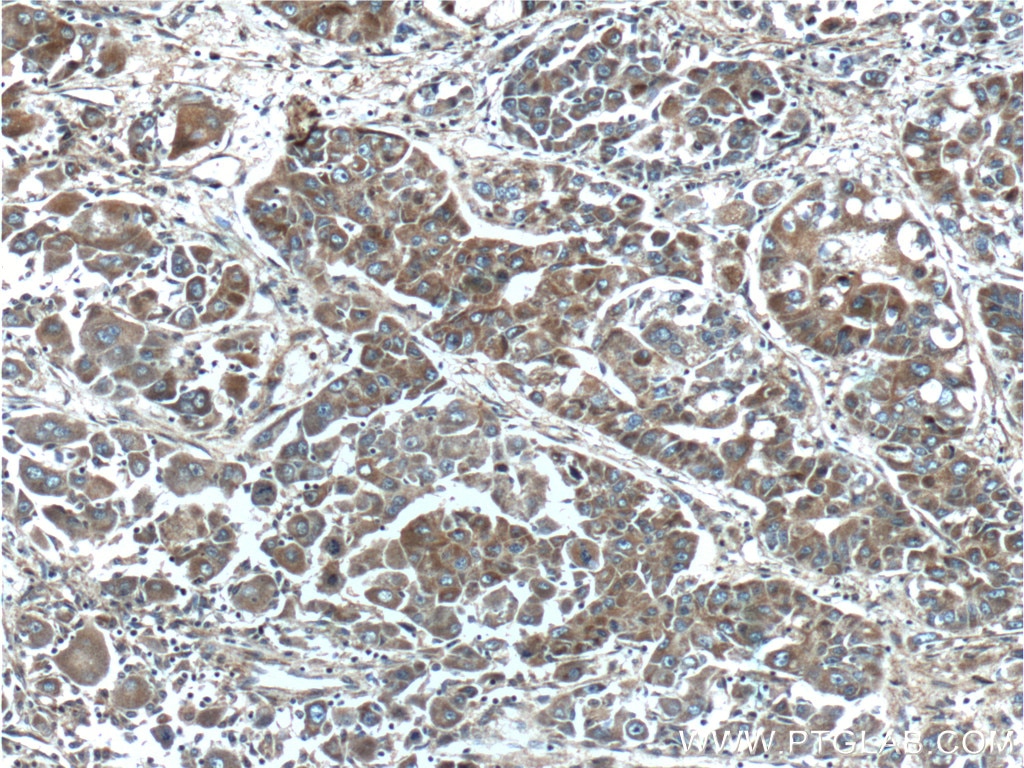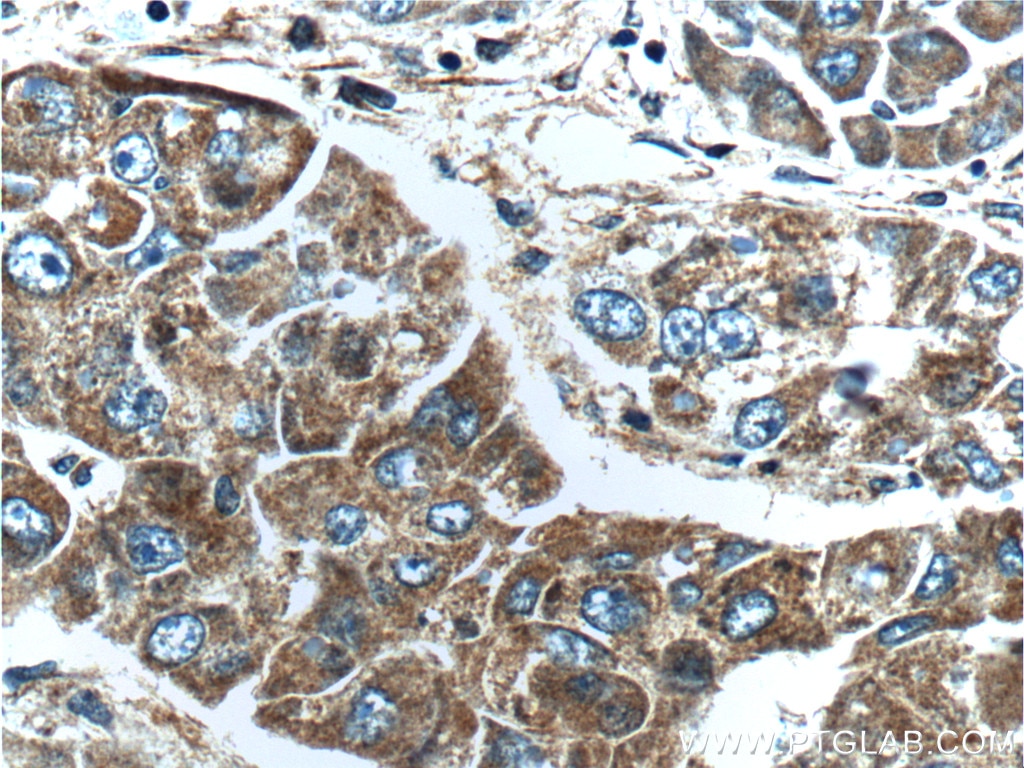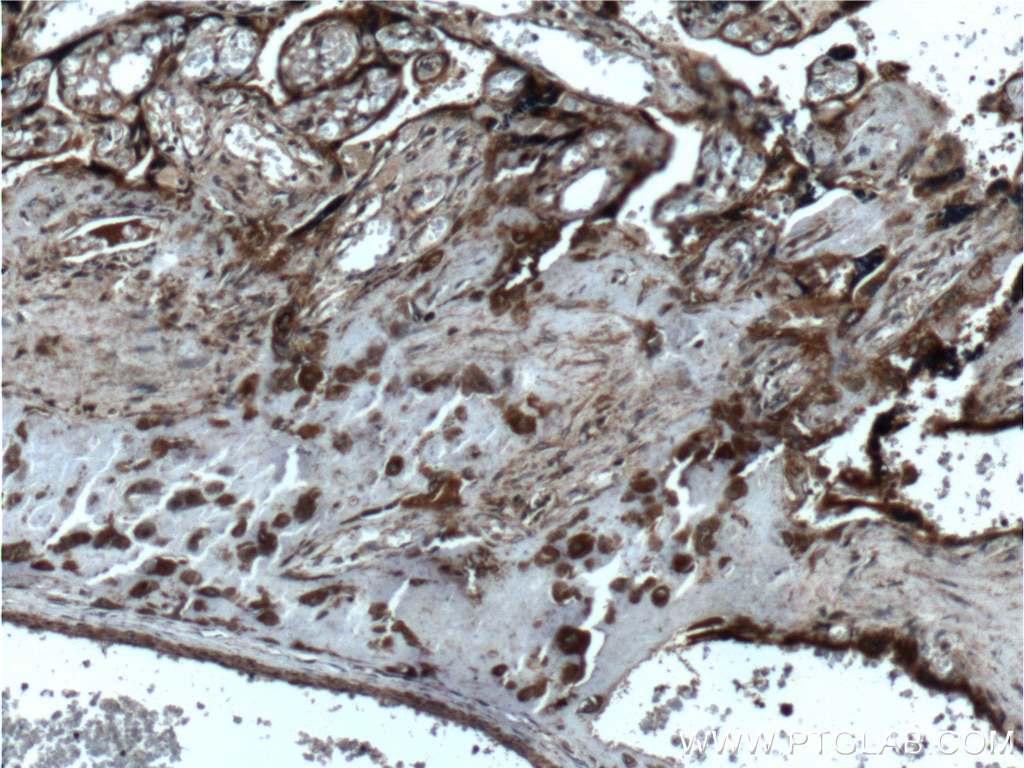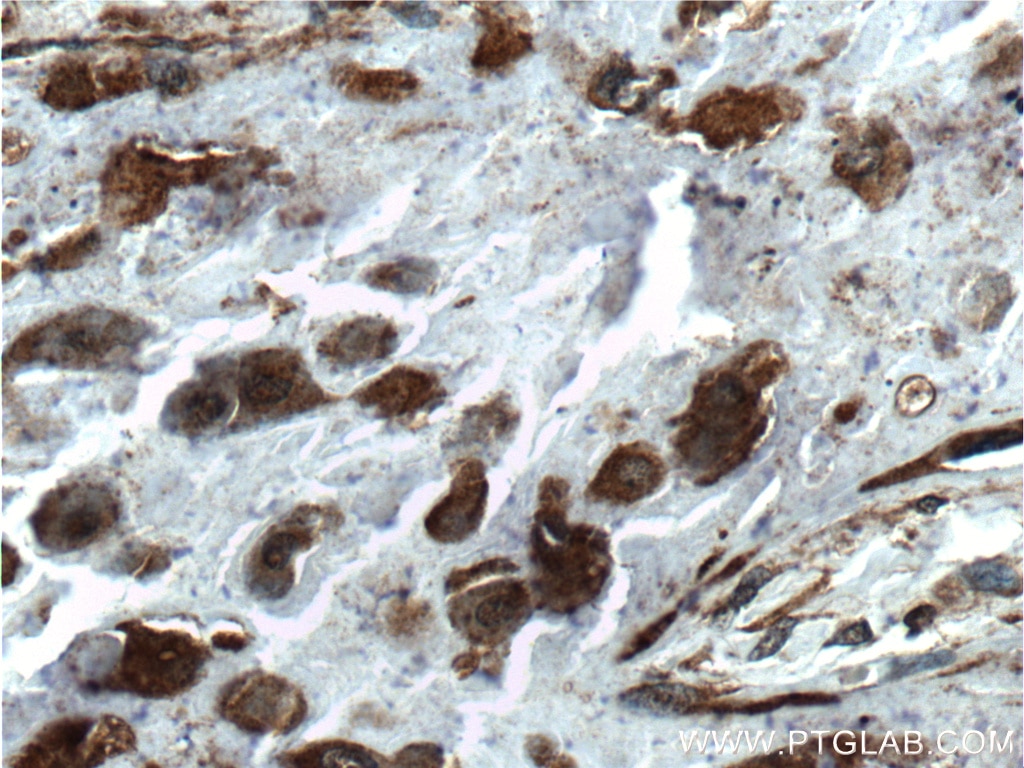FGF3-Specific Polyklonaler Antikörper
FGF3-Specific Polyklonal Antikörper für IHC, ELISA
Wirt / Isotyp
Kaninchen / IgG
Getestete Reaktivität
human
Anwendung
IHC, ELISA
Konjugation
Unkonjugiert
Kat-Nr. : 16874-1-AP
Synonyme
Geprüfte Anwendungen
| Erfolgreiche Detektion in IHC | Maus-Cerebellum-Gewebe, humanes Leberkarzinomgewebe, humanes Plazenta-Gewebe Hinweis: Antigendemaskierung mit TE-Puffer pH 9,0 empfohlen. (*) Wahlweise kann die Antigendemaskierung auch mit Citratpuffer pH 6,0 erfolgen. |
Empfohlene Verdünnung
| Anwendung | Verdünnung |
|---|---|
| Immunhistochemie (IHC) | IHC : 1:50-1:500 |
| It is recommended that this reagent should be titrated in each testing system to obtain optimal results. | |
| Sample-dependent, check data in validation data gallery | |
Produktinformation
16874-1-AP bindet in IHC, ELISA FGF3-Specific und zeigt Reaktivität mit human
| Getestete Reaktivität | human |
| Wirt / Isotyp | Kaninchen / IgG |
| Klonalität | Polyklonal |
| Typ | Antikörper |
| Immunogen | Peptid |
| Vollständiger Name | fibroblast growth factor 3 (murine mammary tumor virus integration site (v-int-2) oncogene homolog) |
| Berechnetes Molekulargewicht | 27 kDa |
| GenBank-Zugangsnummer | NM_005247 |
| Gene symbol | FGF3 |
| Gene ID (NCBI) | 2248 |
| Konjugation | Unkonjugiert |
| Form | Liquid |
| Reinigungsmethode | Antigen-Affinitätsreinigung |
| Lagerungspuffer | PBS with 0.02% sodium azide and 50% glycerol |
| Lagerungsbedingungen | Bei -20°C lagern. Nach dem Versand ein Jahr lang stabil Aliquotieren ist bei -20oC Lagerung nicht notwendig. 20ul Größen enthalten 0,1% BSA. |
Hintergrundinformationen
FGF3 is a member of the Fibroblast growth factor family, binding to Fibroblast Growth Factor Receptor 3 (FGFR3). Frequent amplification of this gene has been found in human tumors, which may be important for neoplastic transformation and tumor progression. FGF-3 was reported to be responsible for most of breast malignancies. This antibody is specific to FGF-3. It does not bind other FGFs.
Protokolle
| PRODUKTSPEZIFISCHE PROTOKOLLE | |
|---|---|
| IHC protocol for FGF3-Specific antibody 16874-1-AP | Protokoll herunterladenl |
| STANDARD-PROTOKOLLE | |
|---|---|
| Klicken Sie hier, um unsere Standardprotokolle anzuzeigen |
